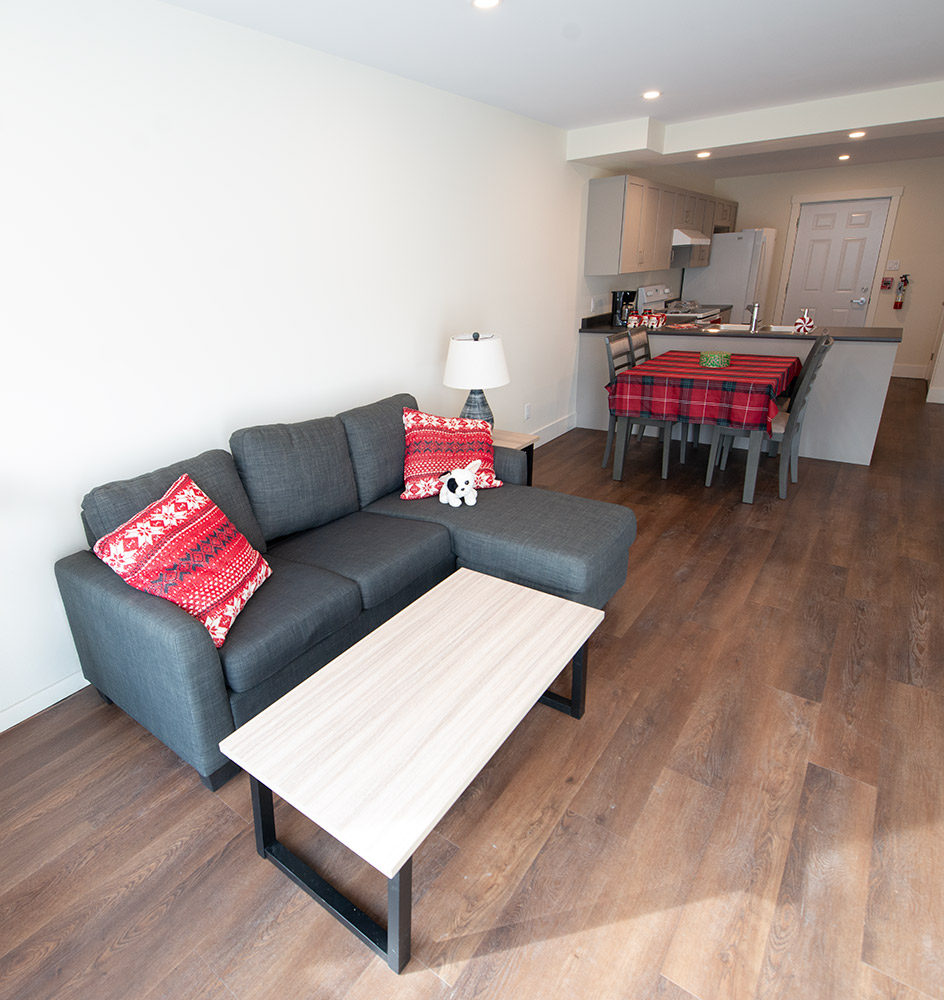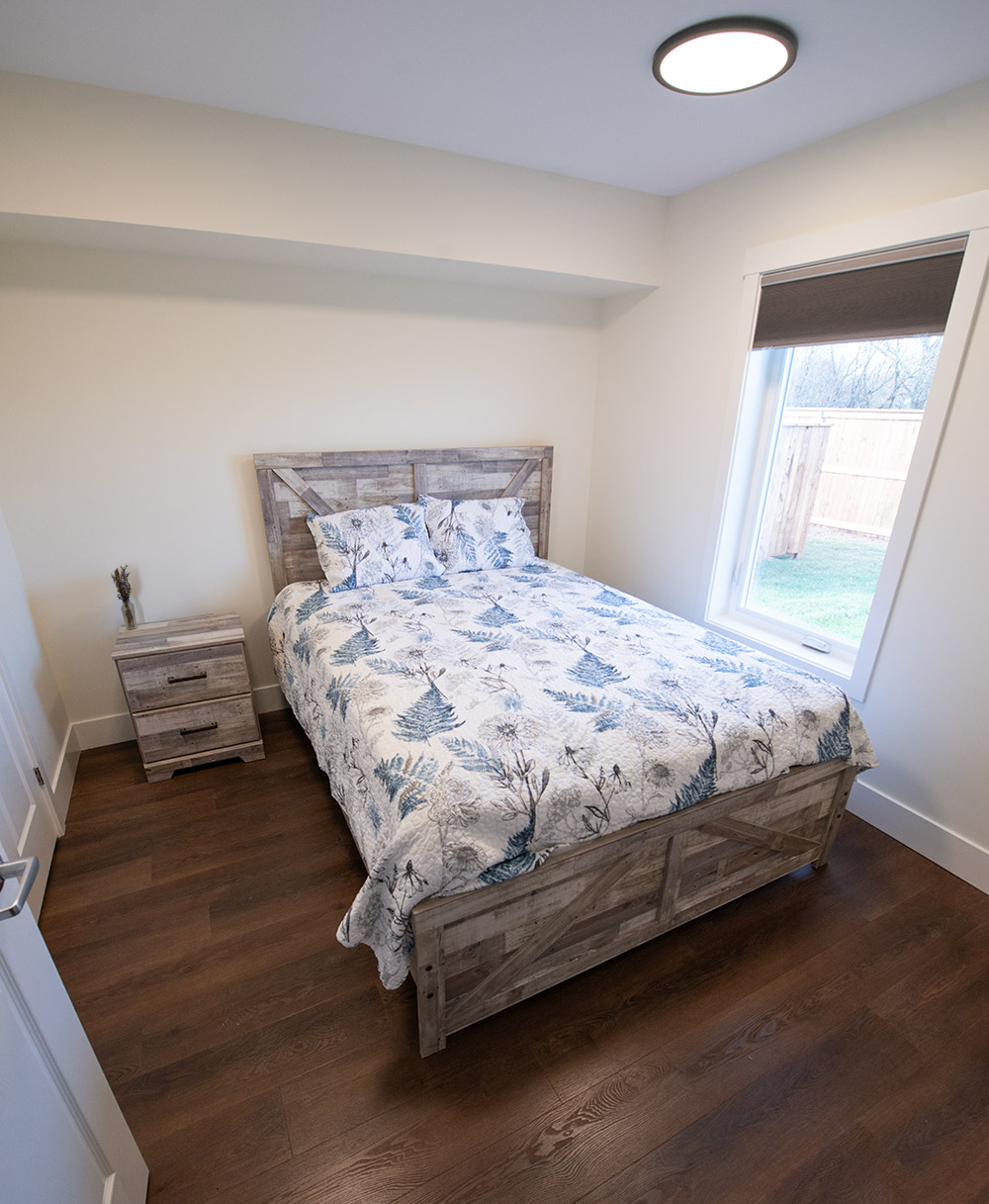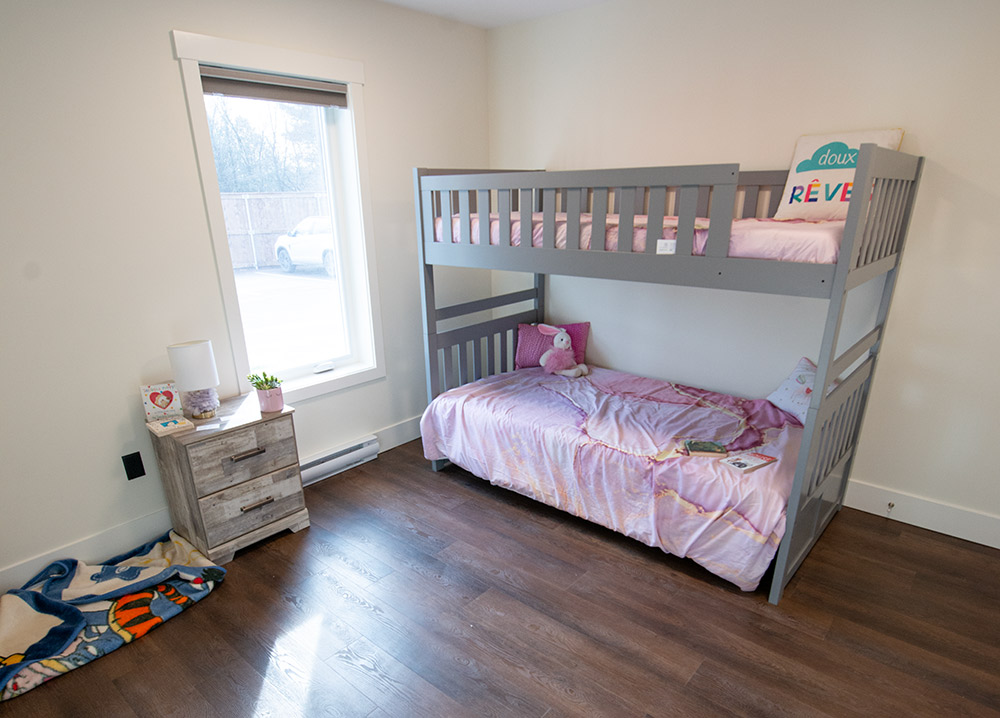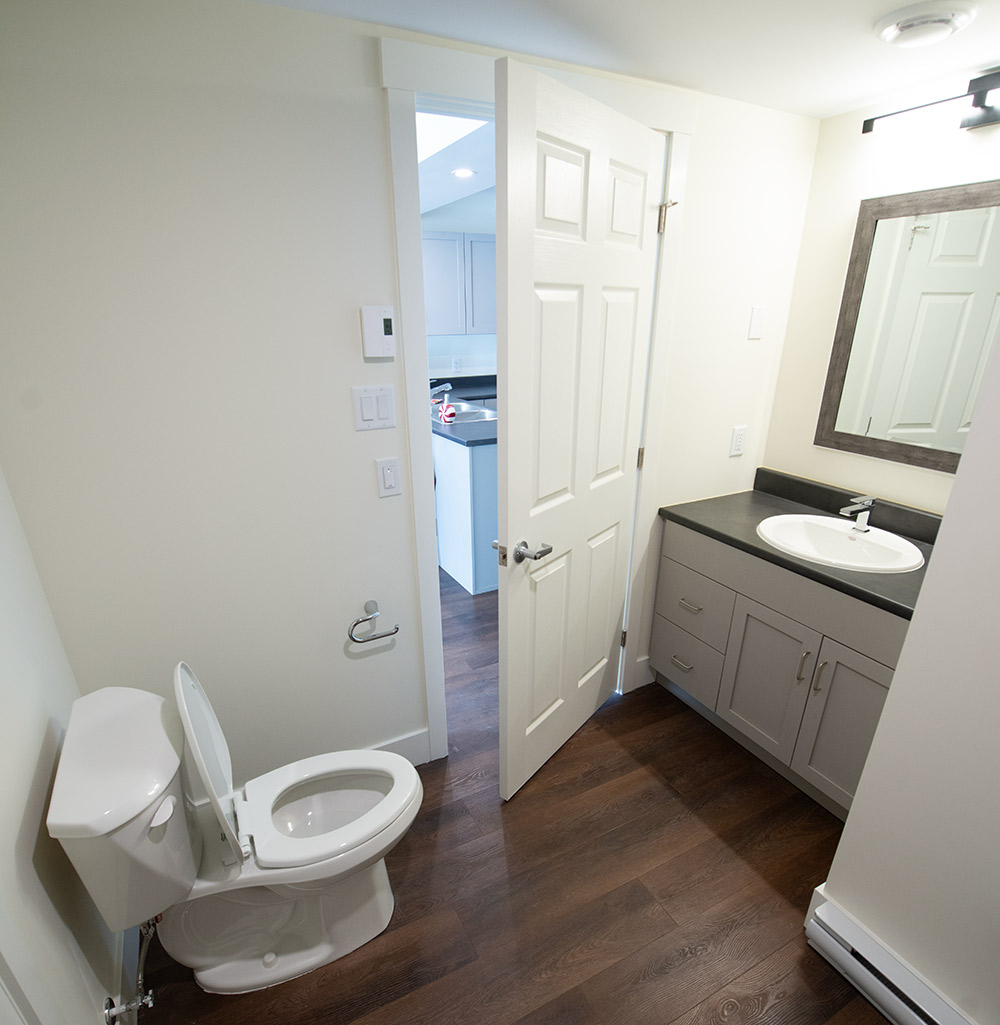Doors of Hope
Second Stage Program
Second Stage programs support women survivors of Domestic and Intimate Partner Violence (DIPV) as they rebuild their lives, heal from abuse, develop resiliency, and move toward living violence-free lives and fully independent living. Doors of Hope provides mid-term (12-month) safe housing and supports for women and their children who have left an abusive relationship.
Vision
We aspire to offer a sustainable, safe, supportive and affordable housing program for women and their children moving forward from domestic violence.
Mission
We are committed to safe, affordable housing for women and children leaving domestic violence, providing ongoing counselling, programming and support. We offer tools to empower women to lead independent, successful, healthy lives.
Frequently Asked Questions
How long can I live there?
People typically live at Doors of Hope up to I year. We understand that everyone heals at their own pace, so if you have accomplished all of your goals and are ready to move on and transition into the community sooner than I year, or if you find that the program is not the right fit for you, you are able to move out earlier. We do ask for at least 2 weeks — 1 month notice when you are planning to move.
Is it communal living?
Yes and no. Each family gets their own apartment unit where you live, cook, play, etc. in the privacy of your own home. There are two units that are barrier free and accessible. There are some spaces that everyone shares, such as the laundry facilities and the yard. There is an admin building where the staff office is and where programming takes place. Each individual is responsible for their own grocery shopping, cooking, cleaning, and household care.
What safety/security precautions are there to keep us safe?
Safety is our number I priority at Doors of Hope. It is a secure facility that can only be entered by someone with a door code or by Doors of Hope staff. There is a fence surrounding the property including a security gate. There are security cameras in the yard, parking lot, and admin building. We have safety and security protocols in place, such as lock down procedures that include an auditory alarm. Staff complete regular safety checks and safety planning with everyone who lives at Doors of Hope.
What does the unit look like?
The units are 3-, 2- or 1-bedroom apartments, with 1 full bathroom. The barrier free units have either 1 or 2 bedrooms. All of the units include appliances such as stove, oven and refrigerator.
Can I bring my own furniture?
Yes! Our units are not furnished.
How much is rent?
Rent is set at the same amount that NB Housing provides for Subsidized Rental Housing. The housing fee at Doors of Hope also includes water, Wi-Fi internet. You will need to set up your own NB Power account for heat and lights.
What about pets?
Unfortunately, we are not able to have pets at Doors of Hope.
Can I have visitors?
Doors of Hope is a secure facility and to ensure everyone’s safety we do not allow personal visitors onsite. If you are connected with another agency or organization, we do welcome your worker to come provide support in your unit, but we do ask to be notified of when they will be there. If you have a safe person that you want to be able to pick you up / drop you off at Doors of Hope, you will need to notify the staff.
If you have children that are not in your care full time, they are welcome to visit and attend programming, but please ensure that staff are notified.
Drugs and alcohol?
Doors of Hope is a dry facility, meaning there are no drugs or alcohol permitted and residents are not allowed to be impaired while onsite. If someone uses marijuana medicinally, they need to provide appropriate documentation from a doctor, they need to use it as prescribed (not recreationally), it needs to be smoked in a designated area, and it needs to be purchased legally from an approved pharmacy or vendor.
What commitment is expected from me?
Doors of Hope is a second stage family violence program, not a housing program. There are groups 4 times a week that you will be expected to attend and regular 1:1 appointment with a Client Care Coordinator and with the Child Support Workers to provide support and assist you with your goals and healing process. There will also be weekly groups and regular 1:1 supports available for your children, depending on age. While living at Doors of Hope we do ask clients to make a commitment to engage in the programming being offered. If you find that the programming is not right for you, staff can support you with looking into different support options and assist you with moving out of Doors of Hope and into the community.





